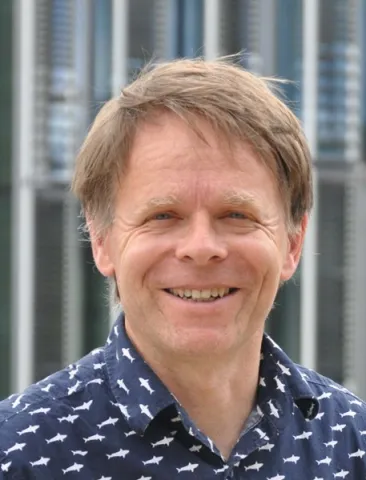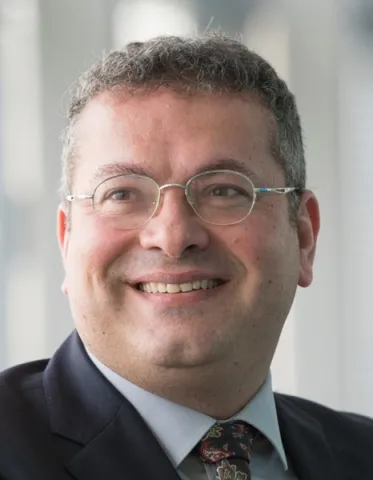Project overview
The Intelligent Structures for Low Noise Environments is a ground-breaking proseprity partnership funded by the Engineering and Physical Sciences Research Council that brings the Institute of Sound and Vibration Research from the University of Southampton together with BAE Systems, the Centre for Additive Manufacturing at the University of Nottingham and Lloyd’s Register to create new materials and intelligent structures that will control underwater noise, reducing its harmful impact on marine wildlife.
Increasing international trade is leading to an explosion in the amount of shipping worldwide, which in turn is increasing the levels of noise pollution in our oceans. This is exacerbated by the large scale of the vessels used with low frequency acoustic radiation from vibrating structures propagating over long distances. The elevated noise and its detrimental impact on sea-life is a significant environmental concern. The power needed to propel such large container vessels is also leading to significant internal habitability issues with associated health and safety concerns. More generally, dwindling natural fuel reserves together with concern over greenhouse gas emissions is leading to a proliferation of offshore and land-based renewable energy generating installations. Such projects are all contributing to increasing noise pollution that in many cases radiates as infrasound (i.e. at frequencies below the threshold of human hearing) that causes unique physiological effects and discomfort in humans. In the automotive sector, similar environmental pressures are leading to lighter material construction and the increasing use of electric power. These trends lead to similar challenges for sound control and in the case of electric vehicles, this involves consideration of the unique psychological effects that cause annoyance that are not present or masked in vehicles powered by internal combustion engines.
The primary vision of this project is to address the low frequency noise mitigation requirement with an ambitious programme of research aimed at the development of a range of energy efficient novel intelligent structures through the holistic combination of tools and techniques from the key distinct disciplines of active and semi-active control, fluid structure interaction, acoustic modelling, signal processing and numerical optimisation and additive layer manufacture. An Intelligent Structure is defined here as a structure that integrates structural elements that encompass novel sensors, actuation including morphing materials, energy scavenging and energy storage, printed electronics, data storage, computing and communications; not only as discrete embedded devices but also printed using advanced additive manufacturing techniques. In combination the components deliver behaviour and performance that satisfy multiple objectives that could include energy efficiency, fault tolerance, low noise, low vibration and light weight.
Increasing international trade is leading to an explosion in the amount of shipping worldwide, which in turn is increasing the levels of noise pollution in our oceans. This is exacerbated by the large scale of the vessels used with low frequency acoustic radiation from vibrating structures propagating over long distances. The elevated noise and its detrimental impact on sea-life is a significant environmental concern. The power needed to propel such large container vessels is also leading to significant internal habitability issues with associated health and safety concerns. More generally, dwindling natural fuel reserves together with concern over greenhouse gas emissions is leading to a proliferation of offshore and land-based renewable energy generating installations. Such projects are all contributing to increasing noise pollution that in many cases radiates as infrasound (i.e. at frequencies below the threshold of human hearing) that causes unique physiological effects and discomfort in humans. In the automotive sector, similar environmental pressures are leading to lighter material construction and the increasing use of electric power. These trends lead to similar challenges for sound control and in the case of electric vehicles, this involves consideration of the unique psychological effects that cause annoyance that are not present or masked in vehicles powered by internal combustion engines.
The primary vision of this project is to address the low frequency noise mitigation requirement with an ambitious programme of research aimed at the development of a range of energy efficient novel intelligent structures through the holistic combination of tools and techniques from the key distinct disciplines of active and semi-active control, fluid structure interaction, acoustic modelling, signal processing and numerical optimisation and additive layer manufacture. An Intelligent Structure is defined here as a structure that integrates structural elements that encompass novel sensors, actuation including morphing materials, energy scavenging and energy storage, printed electronics, data storage, computing and communications; not only as discrete embedded devices but also printed using advanced additive manufacturing techniques. In combination the components deliver behaviour and performance that satisfy multiple objectives that could include energy efficiency, fault tolerance, low noise, low vibration and light weight.
Staff
Lead researchers
Other researchers
Collaborating research institutes, centres and groups
Research outputs
Archie Keys & Jordan Cheer,
2024, Journal of Dynamics, Monitoring and Diagnostics, 3(1), 40-48
Type: article
Archie Keys & Jordan Cheer,
2023
Type: conference
Elizabeth Hannah Austin & Jordan Cheer,
2022, Frontiers in Physics, 10
Type: article
Alexander Pike & Jordan Cheer,
2022
Type: conference
Kristian E. Hook, Jordan Cheer & Angelis Karlos,
2022, JASA Express Letters, 2(9)
DOI: 10.1121/10.0013899
Type: article



